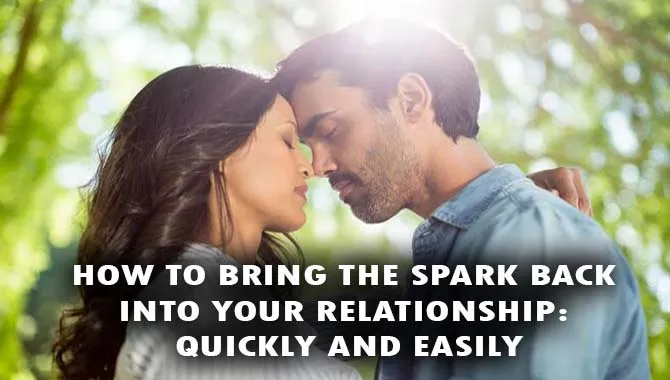Quick Summary: When dating a narcissist, the “best relationship advice” means learning to protect your own well-being. It involves recognizing narcissistic traits, setting firm boundaries, managing expectations, and prioritizing self-care. Focus on your emotional health rather than changing them.
Navigating the world of dating can feel like a minefield sometimes, and relationships are no different. If you’ve ever felt confused, drained, or consistently undervalued in a romantic connection, you might be wondering what truly makes for “best relationship advice.” This is especially true when you suspect you might be dating someone with narcissistic tendencies. It’s a common and frustrating experience that leaves many feeling lost. But don’t worry, you’re not alone, and there are practical steps you can take to understand and navigate these complex situations. This guide will walk you through what “best relationship advice meaning” really entails when you’re dating a narcissist, offering clear steps to help you protect yourself and your peace of mind.
Understanding Narcissism in Relationships
When we talk about dating a narcissist, it’s helpful to understand that narcissism exists on a spectrum. Not everyone who exhibits a few narcissistic traits is a full-blown narcissist. However, when those traits significantly impact a relationship, it becomes crucial to recognize them. Narcissistic Personality Disorder (NPD) is a mental health condition characterized by an inflated sense of self-importance, a deep need for excessive attention and admiration, troubled relationship dynamics, and a lack of empathy for others. People with narcissistic traits often appear charming and confident initially but can become demanding, controlling, and dismissive over time.
The core of the challenge in dating a narcissist is their inability to form equitable relationships. They often see relationships as a way to fulfill their own needs for validation and admiration, rather than a partnership based on mutual respect and give-and-take. This doesn’t mean they are intentionally malicious, but rather that their internal world and coping mechanisms make deep, authentic connection exceptionally difficult. Recognizing these patterns is the first step toward safeguarding your emotional health.
Key Traits of Narcissism to Watch For:
- Sense of Grandiosity: An exaggerated belief in their own importance, talents, and uniqueness.
- Need for Admiration: A constant craving for attention and praise.
- Lack of Empathy: Difficulty or inability to understand or share the feelings of others.
- Sense of Entitlement: Expecting special treatment and automatic compliance with their expectations.
- Exploitative Behavior: Taking advantage of others to achieve their own ends.
- Arrogance: Haughty or disdainful attitudes.
- Envy: Often believing others are envious of them or becoming envious of others.
- Sensitivity to Criticism: Reacting to criticism with feelings of rage, shame, or humiliation, even if not expressed outwardly.
It’s important to remember that you cannot “fix” or change someone with narcissistic traits. The focus of the “best relationship advice” in this context is entirely on your own experience and how to navigate the situation healthily.
Why “Best Relationship Advice” Looks Different Here
When you’re in a relationship with someone who doesn’t have a capacity for empathy or mutual regard, the typical advice—like “communicate your needs more clearly” or “compromise”—often falls flat. For someone with narcissistic tendencies, their primary focus is on maintaining their self-image and control. This means they are less likely to genuinely consider your needs or interests if they conflict with their own. Therefore, the “best relationship advice meaning” shifts from trying to build a shared vision to protecting your individual reality and well-being.
Instead of focusing on how to make the relationship work for both of you, the most effective advice centers on:
- Self-Preservation: Ensuring your emotional, mental, and even physical safety.
- Realistic Expectations: Understanding what the other person is capable of giving, which may be very little.
- Boundary Setting: Implementing clear limits to protect yourself from harmful behaviors.
- Emotional Detachment: Learning not to internalize their actions or words.
- Seeking Support: Connecting with others who understand or can offer objective perspectives.
Generic relationship advice often assumes a level of reciprocity and emotional availability that is simply not present in relationships with narcissists. Learning to recognize this distinction is the most crucial aspect of the “best relationship advice meaning” when navigating this specific dynamic.
Decoding the Narcissist’s Behavior: What to Look For
Understanding the patterns of behavior associated with narcissism is fundamental. Narcissists often employ specific tactics that can be confusing and damaging. The initial phase of a relationship with a narcissist is typically characterized by intense attention and flattery, often referred to as “love bombing.” This is meant to quickly hook you and create a strong emotional bond.
Once you are invested, the dynamic often shifts. They may begin to criticize you, subtly or overtly, undermining your self-esteem. This can be done through backhanded compliments, making you doubt your perceptions (“gaslighting”), or devaluing your accomplishments. They may also exhibit controlling behaviors, wanting to know where you are, who you are with, and even dictating your choices.
Common Narcissistic Tactics in Relationships:
- Love Bombing: Overwhelming you with affection, attention, and gifts early on to create a sense of intense connection.
- Gaslighting: Manipulating you into doubting your own memory, perception, or sanity. They might deny things they said or did, or twist events to make you feel like you’re mistaken.
- Devaluation: Once you are hooked, they can shift to criticism, contempt, and withdrawal of affection to diminish your self-worth and make you more dependent on their approval.
- Triangulation: Introducing a third party into the relationship dynamic, either real or imaginary, to create jealousy, competition, or insecurity.
- Projection: Attributing their own unacceptable thoughts, feelings, or behaviors onto you or others. For example, if they are being unfaithful, they might accuse you of doing so.
- Stonewalling/Silent Treatment: Withdrawing communication or affection as a form of punishment or control.
These behaviors are not about your shortcomings; they are about the narcissist’s ingrained patterns of relating to others. Recognizing these tactics is essential to avoid falling further into a damaging cycle.
Setting and Maintaining Boundaries: Your First Line of Defense
Boundaries are limits we set for ourselves to protect our physical, emotional, and mental well-being. In relationships with narcissists, strong and consistent boundaries are not just advisable; they are absolutely critical for survival and self-preservation. The challenge is that narcissists often disregard or attempt to blur boundaries because they don’t align with their desire for control and constant validation.
The “best relationship advice meaning” when it comes to boundaries with a narcissist is to be clear, firm, and prepared for pushback. You need to decide what behaviors you will and will not accept and what you will do if those boundaries are crossed.
How to Set Effective Boundaries:
- Identify Your Boundaries: What specific behaviors are unacceptable to you? Be precise. Examples: “I will not tolerate being yelled at.” “I will not discuss this topic when you are aggressive.” “I need to have time for my friends and hobbies.”
- Communicate Them Clearly and Simply: State your boundary directly, without excessive blaming or explanation, which can be twisted. Use “I” statements. For example: “I feel disrespected when you speak to me that way, and I will end the conversation if it continues.”
- Enforce Them Consistently: This is the hardest part. If you state a consequence, you must follow through. If they yell, end the conversation. If they dismiss your needs, disengage for a period. Inconsistency signals that your boundaries are not serious.
- Expect Resistance: A narcissist will likely test your boundaries, ignore them, or try to make you feel guilty for having them. This is their pattern. Your reaction to their resistance is key.
- Don’t Justify or Argue: You don’t need to defend your boundaries. Simply state them and enforce them. Arguing often gives them more ammunition.
- Prioritize Your Safety: If boundaries are repeatedly violated and you feel unsafe, it’s time to re-evaluate the entire relationship and consider removing yourself from the situation.
Setting boundaries is an act of self-respect. It’s about recognizing your inherent worth and refusing to let another person’s behavior diminish it.
Managing Expectations: The Realistic View
One of the most painful aspects of a relationship with a narcissist is the constant disappointment that arises from unmet expectations. We naturally hope for reciprocity, empathy, and a partner who supports our growth and well-being. However, with a narcissist, these are rarely available in the way one might hope.
The implication of “best relationship advice meaning” here is a profound shift in perspective. It involves accepting that the person you are dating has significant limitations in their capacity for genuine emotional connection and empathy. This is not a judgment; it’s an observation of their relational style, often stemming from deep-seated issues.
What to Realistically Expect (and Not Expect):
Here’s a table illustrating what you might expect versus what is typically lacking, which can help calibrate your outlook:
| What You Might Get (Sometimes) | What is Often Lacking or Inconsistent |
|---|---|
| Surface-level charm and charisma | Genuine empathy and perspective-taking |
| Attention and admiration (especially early on) | Consistent emotional support and validation of your feelings |
| Desire for things to be “perfect” (for them) | Willingness to admit fault or apologize sincerely |
| Focus on outward appearances and success | Deep, vulnerable emotional intimacy |
| Manipulation to get their needs met | Respect for your boundaries without a struggle |
| Love bombing and grand gestures | Consistent, everyday reliability and care for your well-being |
Accepting these realities can be incredibly difficult. It often means grieving the relationship you thought you had or hoped for. However, this acceptance is crucial for making sound decisions about your own future and happiness. It frees you from the exhausting cycle of trying to get something from someone who fundamentally cannot provide it.
It’s useful to consult resources that explain these dynamics in detail. For instance, understanding the psychological underpinnings of narcissistic behavior can provide valuable context. Organizations like the National Institute of Mental Health (NIMH) offer credible information on personality disorders, helping to demystify these complex conditions.
Prioritizing Your Well-being: Self-Care is Non-Negotiable
When you are in a relationship with someone who has narcissistic traits, your emotional and mental energy can be severely depleted. Their self-centeredness, need for validation, and tendency to create drama can leave you feeling drained, anxious, and diminished. This is precisely why self-care is not a luxury but a vital necessity. It’s the fuel that allows you to maintain your boundaries, manage your expectations, and make clear-headed decisions.
The “best relationship advice meaning” ultimately leads back to you. Your well-being is the priority. Engaging in consistent self-care practices can help you rebuild your sense of self and resilience. It’s about actively nurturing yourself and reclaiming your sense of peace.
Essential Self-Care Strategies:
- Emotional Check-ins: Regularly ask yourself how you are feeling. Acknowledge and validate your emotions, even if the other person dismisses them.
- Physical Health: Ensure you are getting enough sleep, eating nutritious food, and engaging in regular physical activity. Physical health directly impacts mental resilience.
- Mindfulness and Grounding: Practices like meditation, deep breathing, or spending time in nature can help you stay grounded amidst chaos and prevent you from getting swept up in the other person’s drama.
- Cultivate Your Support System: Spend time with friends and family who uplift you and offer genuine support. These relationships are a vital buffer.
- Engage in Hobbies and Interests: Reconnect with activities that bring you joy and a sense of accomplishment outside the relationship. This reaffirms your identity beyond the partnership.
- Seek Professional Help: A therapist or counselor can provide invaluable tools and a safe space to process the complexities of the relationship and develop coping strategies. Organizations like the American Psychological Association can help you find qualified professionals.
- Journaling: Writing down your thoughts and experiences can help you gain clarity, track patterns, and process difficult emotions.
Remember, self-care is not selfish; it’s essential for maintaining your health and integrity. It allows you to show up as your best self, both for yourself and in any healthy relationships you have.
When to Consider Leaving: Recognizing the Tipping Point
Deciding whether to stay in or leave a relationship with someone exhibiting narcissistic traits is one of the most challenging decisions one can face. There isn’t a universal “tipping point” that applies to everyone, as individual resilience and circumstances vary greatly. However, certain indicators strongly suggest that the relationship is detrimental and that leaving might be the healthiest option.
The “best relationship advice meaning” at this stage is a sober assessment of whether the relationship enhances your life or consistently erodes your well-being. If the answer leans more towards the latter, it’s time to seriously consider an exit strategy.
Signs It Might Be Time to Leave:
- Your Mental or Physical Health is Suffering: If you are experiencing significant anxiety, depression, chronic stress, lack of sleep, or other physical ailments directly linked to the relationship.
- Constant Devaluation and Erosion of Self-Esteem: If you consistently feel criticized, belittled, or that your worth is being chipped away.
- Lack of Reciprocity and Emotional Support: If your needs are never met, your feelings are always dismissed, and you feel emotionally alone even when you’re together.
- Abusive Behaviors: This includes emotional, verbal, or physical abuse. No one deserves to be treated abusively. Resources like The National Domestic Violence Hotline can offer support and guidance if abuse is a factor.
- You Feel Controlled or Manipulated: If your choices, relationships, or actions are consistently dictated or manipulated by your partner.
- You’ve Lost Yourself: If you no longer recognize who you are, have given up your interests, or feel completely dependent on the narcissist’s validation.
- Boundaries are Routinely Ignored: If you’ve consistently tried to set boundaries and they are repeatedly violated, indicating a fundamental lack of respect.
Leaving a relationship, especially one with a narcissist, can be a long and complex process. Seek support from friends, family, or a qualified therapist to help you plan and navigate this transition safely and effectively. Your peace and long-term well-being are paramount.
Frequently Asked Questions (FAQ)
Q1: Can a relationship with a narcissist ever be healthy?
A: It is extremely difficult. While some individuals with narcissistic traits might engage in therapy to manage their behaviors, the core characteristics of narcissism (lack of empathy, need for admiration, entitlement) fundamentally challenge the foundation of an equitable, reciprocal relationship. True, deep connection as typically understood is often not possible.
Q2: How do I know if my partner is a narcissist or just selfish?
A: Selfishness is a broad trait, but narcissism involves a pervasive pattern of grandiosity, a profound need for admiration, a lack of empathy, and exploitative behaviors. If these traits are consistent, pervasive across different situations, and significantly harm others, it leans more towards narcissistic tendencies rather than simple selfishness.
Q3: What is “gaslighting,” and how can I protect myself from it?
A: Gaslighting is a form of psychological manipulation where a person makes you doubt your own memory, perception, or sanity. To protect yourself, keep a journal, trust your gut feelings, seek validation from trusted friends or family, and recognize that their denial of reality is a tactic, not necessarily the truth.
Q4: Should I try to change my partner or help them become more empathetic?
A: The “best relationship advice” is that you cannot change another person, especially someone with deeply ingrained narcissistic traits. Their willingness to change, if any, must come from within and often requires professional intervention. Your energy is better spent on self-protection and well-being.
Q5: What’s the best way to end a relationship with a narcissist?
A: The “gray rock” method or a “no-contact” approach are often recommended. “Gray rock” means becoming as boring and unresponsive as possible to deny them the reaction they seek. “No contact” involves cutting off all communication. Both aim to detach yourself without providing the drama or supply they crave, making it harder for them to re-engage.
Q6: Is it normal to feel guilty after setting boundaries or leaving a narcissist?
A: Yes, it’s very common to feel guilt, especially if you’ve been manipulated into believing you are responsible for their feelings or happiness. This guilt often stems from the conditioning experienced within the relationship. Remind yourself that setting boundaries and prioritizing your well-being is an act of self-preservation, not selfishness.
Conclusion
Navigating a relationship with someone who exhibits narcissistic traits presents a unique set of challenges that deviate significantly from standard relationship advice. When we talk about the “best relationship advice meaning” in this context, it’s fundamentally about re-orienting your focus inward—towards protecting your own emotional, mental, and even physical well-being. It involves a deep understanding that the traditional tools of communication, compromise, and mutual empathy may not yield the desired results because the other person’s capacity for these is limited.
The journey requires recognizing narcissistic patterns, establishing and fiercely maintaining boundaries, adjusting your expectations to a more realistic perspective, and making self-care an absolute priority. It’s about acknowledging that you cannot fix or change someone else, but you can absolutely change how you respond and protect yourself. For many, the healthiest outcome involves recognizing when the relationship is causing more harm than good and having the courage to step away, often with the support of trusted friends, family, or professional help. Prioritizing your own peace and healing is, in essence, the most valuable relationship advice you can give yourself when dating a narcissist.





